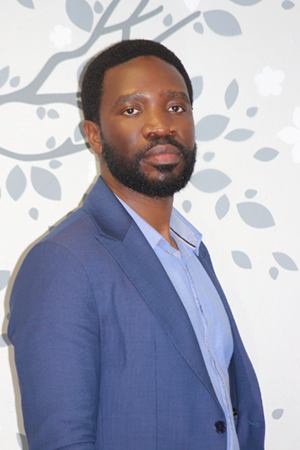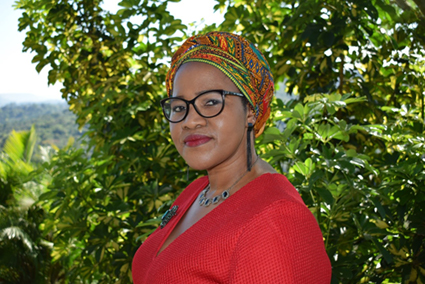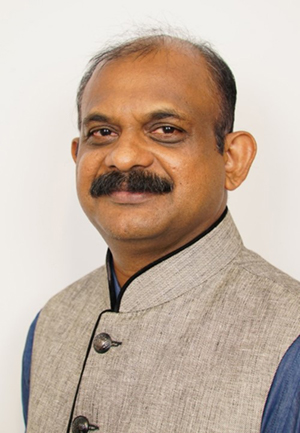Conference Chairperson

Prof. Mpumelelo E. Ncube
Keynote Speakers
 Dr. Sibonsile Zibane is a humanitarian, activist, and scholar who has spent over three decades advancing the restoration of African dignity and reclaiming the soul of Africa through collaborated philanthropy, education, and community engagement. A senior lecturer in Social Work at the University of KwaZulu-Natal, her scholarship lies at the intersection of Isintu, psychosocial support, disaster response, and healing practices, grounded in decoloniality and Afrocentricity as political, ethical, and spiritual imperatives. As a founding member of the Ma’at Institute, she pioneers African-centred psychosocial services rooted in the values of Ubuntu and Ma’at—truth, justice, reciprocity, order, balance, and harmony. The Institute plays a vital role in peacebuilding, trauma-informed care, and COVID-19 response, offering interventions embedded in African epistemologies. It also mentors unemployed graduates through work-based internships that bridge academic knowledge with community-rooted practice. Dr Zibane’s activism is anchored in the conviction that healing and sustainability emerge when scholarship, advocacy, and spirit are aligned and to restore the soul of communities.
Dr. Sibonsile Zibane is a humanitarian, activist, and scholar who has spent over three decades advancing the restoration of African dignity and reclaiming the soul of Africa through collaborated philanthropy, education, and community engagement. A senior lecturer in Social Work at the University of KwaZulu-Natal, her scholarship lies at the intersection of Isintu, psychosocial support, disaster response, and healing practices, grounded in decoloniality and Afrocentricity as political, ethical, and spiritual imperatives. As a founding member of the Ma’at Institute, she pioneers African-centred psychosocial services rooted in the values of Ubuntu and Ma’at—truth, justice, reciprocity, order, balance, and harmony. The Institute plays a vital role in peacebuilding, trauma-informed care, and COVID-19 response, offering interventions embedded in African epistemologies. It also mentors unemployed graduates through work-based internships that bridge academic knowledge with community-rooted practice. Dr Zibane’s activism is anchored in the conviction that healing and sustainability emerge when scholarship, advocacy, and spirit are aligned and to restore the soul of communities.
Presentation Title and Objectives
Reweaving the Social Fabric: African-Centred Healing and Peacebuilding through Social Work in Response to the Climate Crisis
Objectives:
1. Explore African-centred healing and peacebuilding frameworks (Ubuntu and Ma’at - as culturally grounded responses to environmental disruption and community trauma).
2. Demonstrate how social work practice can facilitate community resilience, intergenerational healing, and sustainable development in the context of the climate crisis.
3. Reflect on the ethical and spiritual imperatives of decolonial, African-centred social work in shaping a just and sustainable future.
 Prof. Abraham Francis is a Professor of Social Work at the University of Notre Dame, Australia, and a global leader in Social Work education, practice, and research. He has worked with NGOs, international agencies, and the corporate sector, and holds adjunct and visiting positions at James Cook University and Manipal University, India. He is also a fellow at the Emotional Wellbeing Institute, Geneva. He has initiated international research projects, developed global field placements, and built partnerships with universities and organizations across South Asia. Previously, he taught at the University of Delhi and James Cook University and served as a senior mental health Social Worker in South Australia. Professor Francis specializes in strengths-based practice in mental health and has significantly contributed to literature, conferences, and research networks in the field. His interests include communities, mental health, workplace wellbeing, flourishing, collective flourishing, criminal justice, international social work, and gerontological social work. He has received several awards for teaching and professional excellence, including James Cook University’s Inclusive Practice Award (2010), Citation for Outstanding Contributions to Student Learning (2016), NAPSWI Lifetime Achievement Award (2018), Bharata Mata Best Social Work Academician Award (2023), and the Acharya Award (2024).
Prof. Abraham Francis is a Professor of Social Work at the University of Notre Dame, Australia, and a global leader in Social Work education, practice, and research. He has worked with NGOs, international agencies, and the corporate sector, and holds adjunct and visiting positions at James Cook University and Manipal University, India. He is also a fellow at the Emotional Wellbeing Institute, Geneva. He has initiated international research projects, developed global field placements, and built partnerships with universities and organizations across South Asia. Previously, he taught at the University of Delhi and James Cook University and served as a senior mental health Social Worker in South Australia. Professor Francis specializes in strengths-based practice in mental health and has significantly contributed to literature, conferences, and research networks in the field. His interests include communities, mental health, workplace wellbeing, flourishing, collective flourishing, criminal justice, international social work, and gerontological social work. He has received several awards for teaching and professional excellence, including James Cook University’s Inclusive Practice Award (2010), Citation for Outstanding Contributions to Student Learning (2016), NAPSWI Lifetime Achievement Award (2018), Bharata Mata Best Social Work Academician Award (2023), and the Acharya Award (2024).
Presentation Title and Objectives
Innovative Global Partnerships and Research-Driven Practices: Advancing Social Work Education through Reciprocity and Evidence-Based Learning
Objectives:
1. Explore the role of global partnerships in enhancing student learning through cross-cultural exchanges, collaborative research, and international field placements.
2. Examine reciprocity and the reciprocal framework as foundations for building sustainable, mutually beneficial partnerships in social work education.
3. Demonstrate strategies for integrating research and experiential learning into the curriculum, including service-learning projects, fieldwork, and collaborative inquiry.
4. Highlight the importance of evidence-based practices and critical thinking in preparing competent, innovative, and socially responsive social work professionals.
 Prof. Zibonele F. Zimba is a descendant of the Soil and Waters of the Great Lakes of Africa. An Associate Professor and Deputy Head of the Department of Social Work and Community Development at the University of Johannesburg. Zibonele practised social work in the rural villages of South Africa, focusing on the use of cultural knowledge as a foundation for intervention. His research passion and interests are Cultural Competence, African spirituality, and Radical Social Work Practice. Zibonele is a Y2 NRF-rated researcher. Zibonele served on various professional leadership structures, such as the Social Work Action Network South Africa (SWAN-SA). Zibonele received various awards and recognitions, including the 2021 ASASWEI: Social Work Emerging Educator of the Year Award and the best research-based paper at the Scholarship of Teaching & Learning (SoTL) Conference in 2018.
Prof. Zibonele F. Zimba is a descendant of the Soil and Waters of the Great Lakes of Africa. An Associate Professor and Deputy Head of the Department of Social Work and Community Development at the University of Johannesburg. Zibonele practised social work in the rural villages of South Africa, focusing on the use of cultural knowledge as a foundation for intervention. His research passion and interests are Cultural Competence, African spirituality, and Radical Social Work Practice. Zibonele is a Y2 NRF-rated researcher. Zibonele served on various professional leadership structures, such as the Social Work Action Network South Africa (SWAN-SA). Zibonele received various awards and recognitions, including the 2021 ASASWEI: Social Work Emerging Educator of the Year Award and the best research-based paper at the Scholarship of Teaching & Learning (SoTL) Conference in 2018.
Presentation Title and Objectives
Practising What We Preach: A Unified Approach to Sustainable Development in Social Work
Objectives:
1. To Reinforce the Ethical Imperative
2. To Bridge the Gap Between Ideals and Implementation
3. To Promote Integrated Thinking
4. To Showcase Practical Models and Case Studies
5. To Call for Interdisciplinary Collaboration
6. To Inspire Commitment to Action and Accountability
